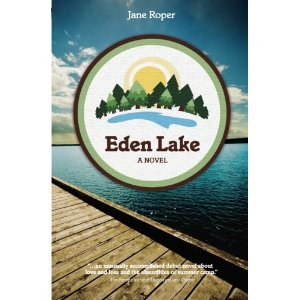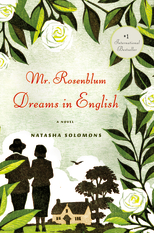Thursday’s Post-Publication Post: Introducing Jane Roper & EDEN LAKE
I know. By now, you may be accustomed to Thursday posts about my story collection, Quiet Americans. But today is special for Last Light Studio, the collaborative micropress that published my book in January. And that’s because today is Pub Day for the next LLS book: Jane Roper‘s novel, Eden Lake.

I was lucky enough to read Eden Lake in manuscript, and I snagged a signed copy of the finished book a bit early when I was in Boston just about two weeks ago. I recommend it to you especially as we approach summer and you start thinking about your summer reading list. It’s a lively, engaging story that takes place at a summer camp in Maine, and it’s bound to bring back some of your own summer-camp memories. It’s also a story about a family.
Here’s a more “official” description:
In 1968, newlyweds Clay Perry and Carol Weiss founded Eden Lake, a utopian children’s summer camp. Thirty years later, their marriage is long over and the camp has become a pricey playground for entitled suburbanites. When tragedy strikes, the Perryweiss children have to decide what role Eden Lake—and all that it stands for—will play in their lives.
Abe, the eldest and heir apparent, has never been able to commit to a career—or a woman. Jude, entangled with a married man, must confront her turbulent relationship with her past. Eric, the youngest, who has never strayed far from Eden Lake, stands at the precipice of a new life. Idealism and infidelity, childhood memories and the hard truths of adulthood collide and coalesce in the summer of 1998 at Camp Eden Lake.
Sounds juicy, doesn’t it?
It has been a pleasure to follow along as part of Team LLS in these months leading up to Eden Lake‘s debut. One of the pre-pub elements I’ve most admired is the Camp Eden Lake website. It does such an excellent job building on the book’s premise, characters, setting, etc., that you may want to sign your kids up for a summer there right away (or enroll yourself)!
Congratulations to Jane on her novel’s pub day. I know that Eden Lake is going to be a big success! And here’s the icing on the cake: If you become a Jane Roper fan now, you won’t have long to wait for the author’s second book. Her memoir “about the ups and downs of her first three years as a mother of twins” will be published by St. Martin’s Press next year!
